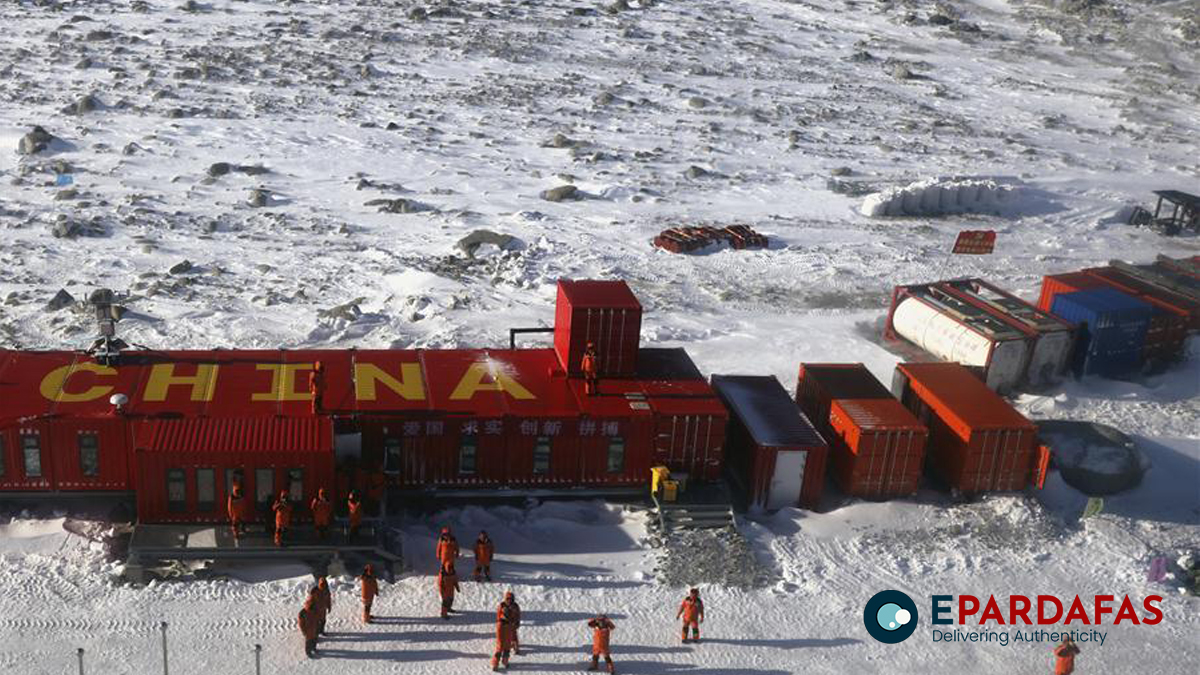
China’s New Antarctic Research Station Raises Concerns About Security Threats
China recently unveiled its latest scientific research station in Antarctica, sparking renewed debate about the intentions and implications of its expanding presence on the continent. The inauguration of the Qinling Station, situated on Inexpressible Island near the Ross Sea, marks China’s fifth scientific outpost and third year-round research station in Antarctica. Spanning 5,244 square meters and capable of accommodating up to 80 people during the summer months, the station represents a significant addition to China’s Antarctic infrastructure.
Located near the U.S. McMurdo Station and strategically positioned just south of Australia, the Qinling Station’s proximity has raised concerns among analysts. A report by the Center for Strategic and International Studies (CSIS) highlighted the potential for China to gather signals intelligence from U.S.-allied Australia and New Zealand, as well as telemetry data on rocket launches from both countries’ space facilities. While the station is primarily intended for scientific research, analysts caution that some of its capabilities could be “inherently dual use,” with possible implications for military or intelligence activities.
Brian Hart, a fellow with the China Power Project at CSIS, emphasized China’s strategic interest in Antarctica, viewing the continent as part of its “strategic frontiers.” He suggested that China’s ongoing expansion of research bases aims to establish a foothold in Antarctic governance and position itself as a global leader comparable to the United States.
In response to concerns about potential intelligence gathering, the Chinese Foreign Ministry asserted that the station operates in compliance with international rules and contributes to scientific understanding and cooperation in the region. However, skepticism remains among experts regarding China’s adherence to the Antarctic Treaty, which prohibits military activities on the continent.
Donald Rothwell, a professor of international law at Australian National University, noted China’s aspirations to become a “great polar power” and its efforts to bolster its credibility through scientific research and engagement in the Antarctic Treaty system. While China emphasizes the peaceful and cooperative nature of its Antarctic activities, questions persist about its long-term intentions and commitment to treaty principles.
Despite assurances from Beijing, analysts caution that the Qinling Station’s capabilities could evolve, potentially incorporating dual-use technologies in the future. Concerns have been raised about the station’s role in supporting China’s satellite communication network and its implications for military capabilities.
In a report on China’s military developments, the U.S. Department of Defense highlighted China’s use of dual-use technologies and facilities in Antarctica to enhance its military capabilities. This includes leveraging Antarctic facilities for its BeiDou satellite navigation network, aimed at reducing reliance on the U.S.-controlled global positioning system.
While acknowledging the importance of legitimate scientific research in Antarctica, analysts stress the need to safeguard the continent as a demilitarized space. Tony Press, an expert on Antarctic affairs at the University of Tasmania, urged utilizing existing inspection regimes to ensure compliance with the Antarctic Treaty and prevent military activities.
As China continues to expand its presence in Antarctica, the international community faces ongoing challenges in balancing scientific cooperation with security concerns and maintaining the Antarctic Treaty’s principles of peace and cooperation.
- 101st Birth Anniversary of Nepali Congress Founding Leader Krishna Prasad Bhattarai Commemorated
- Nepal’s Exports Rise by 16.5% in Five Months Amid Trade Deficit
- Cabinet Decisions: DIGs Singh and Bohara Promoted; Key Policy Changes Approved
- High-Level Meeting Held to Address Nepal’s Anti-Money Laundering Challenges













Comments